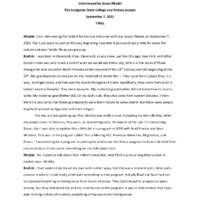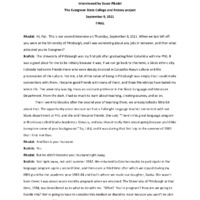Pat Krafcik Oral History Interview
Item
- Identifier
- Title
- Date
- Creator
- Contributor
-
KrafcikPat
-
Pat Krafcik Oral History Interview
-
September 7, 2021
-
September 9, 2021
-
Pat Krafcik
-
Susan Fiksdal
Position: 335 (15 views)

